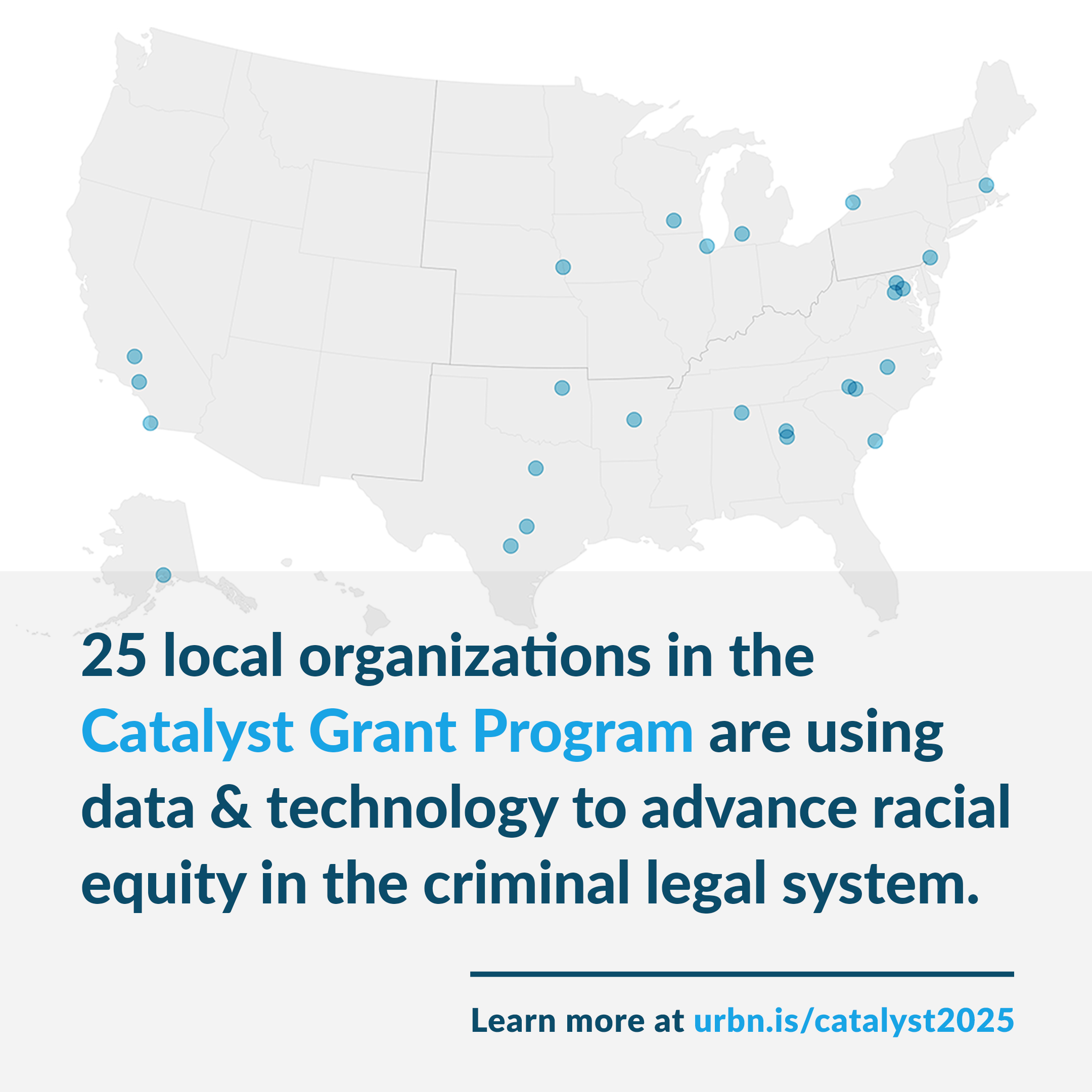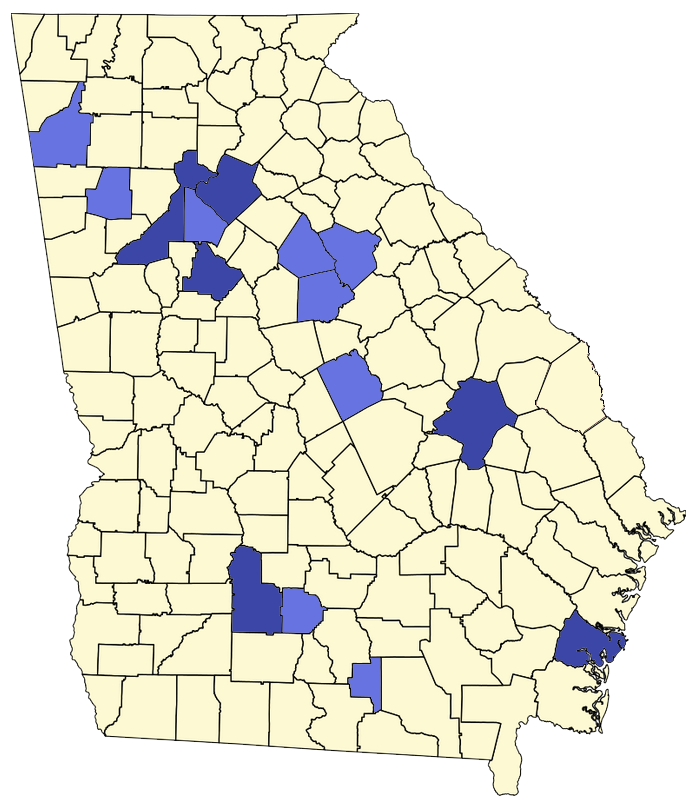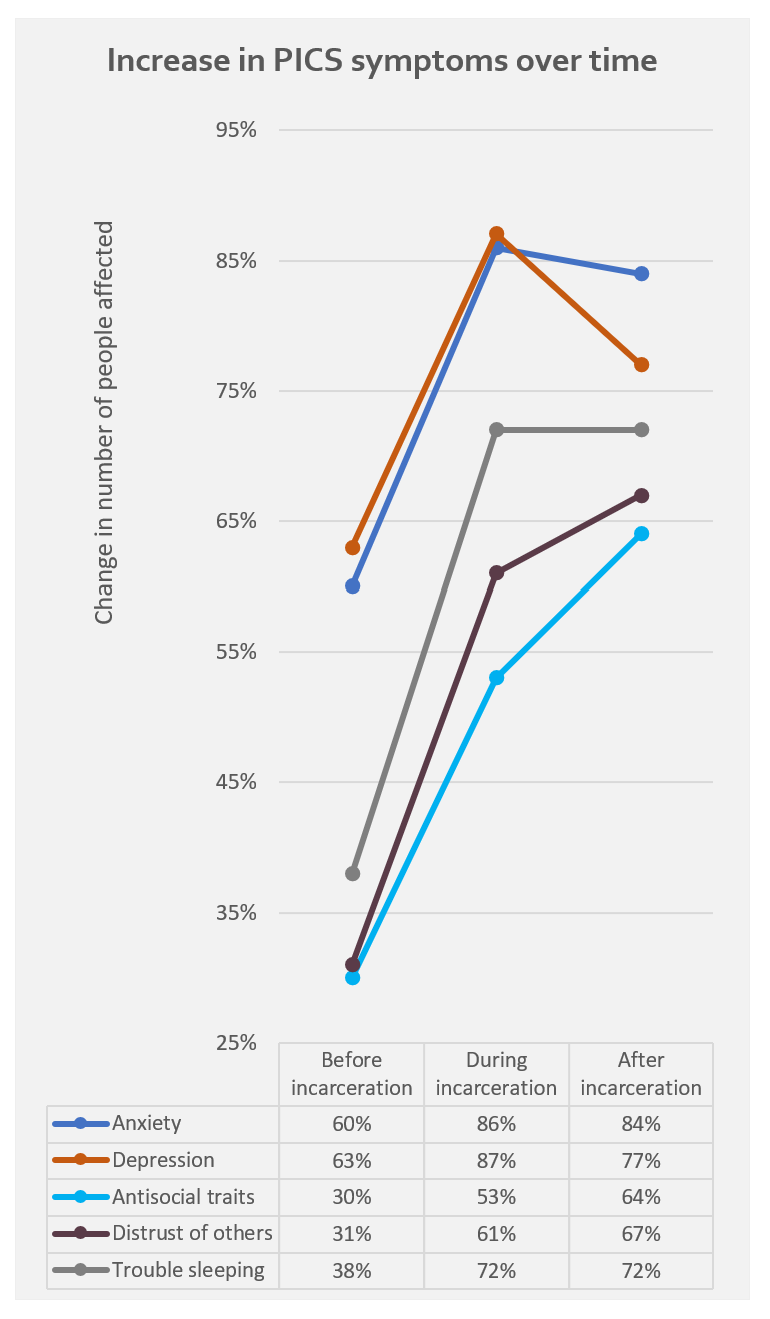Research
Georgia Homicide Research
"Disparities in Conviction, Sentencing, and Parole Outcomes for Those Prosecuted for Homicide Offenses in Georgia"
July 2025 Update: Catalyst Grant for Fulton County Research
Microsoft and Urban Institute recently announced Atlanta Community Support Project's induction into the 2025  Catalyst Grant Program cohort. With Catalyst funding ACSP, in partnership with
Catalyst Grant Program cohort. With Catalyst funding ACSP, in partnership with  Igniting Hope Georgia and the
Igniting Hope Georgia and the  Georgia Coalition Against Domestic Violence, will research disparities in conviction, sentencing, and parole outcomes for people prosecuted for homicide in Fulton County specifically. In December 2025, we will publish a robust report which will include breakdowns of our original data findings for Fulton County.
Georgia Coalition Against Domestic Violence, will research disparities in conviction, sentencing, and parole outcomes for people prosecuted for homicide in Fulton County specifically. In December 2025, we will publish a robust report which will include breakdowns of our original data findings for Fulton County.
In 2006, Georgia increased the mandatory minimum time served on life sentences before parole eligibility to 30 years, and the parole board has required people to serve more time on those sentences each year since. In addition, Black people, poor people, women, and trans people who are charged with homicide face disparities in outcomes at all stages of the criminal legal process. Although several studies have examined racial disparities in the prosecution of homicides at the national level, there has been little research on the causes and consequences of these disparities in Fulton County or Georgia.
Through its efforts to gather and analyze comprehensive court data in Fulton County, ACSP hopes to increase transparency and give advocates and people whose lives have been affected by the criminal legal system the data needed to inform policy and practical change.
Background on the Statewide Project
In July 2023, Atlanta Community Support Project's Luci Harrell and Igniting Hope Georgia's Dr. Bridgett Ortega obtained independent IRB review, as co-PI's, to begin an ambitious, statewide study of how race, class, and gender disparities play out in homicide prosecutions across Georgia. Having since gained the support of several sister organizations and legal partners, the study also aims to identify trends in the sentencing and parole outcomes of DV survivors, among other factors.
In late 2024, ACSP's Georgia Homicide Research received a boost of support from the Sociological Initiatives Foundation. Since then, we've strengthened the effort by building a team of community researchers, including people directly-impacted by mass incarceration, family members of those currently serving life sentences in Georgia, and students at Emory University, Georgia State University, and Atlanta's John Marshall Law School.
ACSP has used the Georgia Homicide Research - what will ultimately be a years' long community-led study initiative - as an opportunity to train and lead on data privacy best practices.
* For anyone interested in assisting with this critical project, please get in touch by filling out ACSP's encrypted connect form.
Post Incarceration Syndrome (PICS)
Do crowded spaces make you anxious? Do you hate sitting with your back to others in a restaurant? Become startled when you hear keys jingling? All of these are signs of post incarceration syndrome, or PICS.
In an effort to better understand our own social and mental health challenges, as well as our relationships to those we love, we conducted a years' long study of PICS from 2019-2022. The study confirmed what we already knew to be true -- that any length of incarceration in the U.S. has a traumatic, lasting effect on us all. PICS affects us no matter our age, race, gender, sexual orientation, educational background, socio-economic status, whether or not we have outside support, regardless of the type of offense(s) we were convicted of, how much time we've served, or how long we've been Out.
Similar to PTSD but distinctly related to incarceration, PICS is characterized by a set of symptoms that affects people while they're incarcerated and after. And though every person's experience, and manifestation of PICS, is unique, our study found some shocking patterns among us.

To learn more, read and share our  PICS Executive Summary. We encourage everyone in our community who has experienced incarceration or loves someone who has to help us minimize the devastating effects of prison and jail by becoming PICS Aware.
PICS Executive Summary. We encourage everyone in our community who has experienced incarceration or loves someone who has to help us minimize the devastating effects of prison and jail by becoming PICS Aware.
To learn more about how you can engage with this campaign as we move forward, sign up to become a member of the Atlanta Community Support Project (free to join).
Criminalized Homelessness
In January 2023, the Atlanta Community Support Project's first research endeavor began. This research involved (1) determining what percentage of those being arrested and incarcerated at the Atlanta City Detention Center (ACDC) were experiencing homelessness at the time of arrest and (2) compiling and anonymizing a sample population of nearly 3,000 people who were known to have been unhoused recently, in order to determine the rate and manner in which they were being criminalized locally.
The results were astounding:
- 12.5% or 1 in 8 of those incarcerated at ACDC in 2022 were unhoused
- 41% had outstanding fines and fees in Fulton County and/or Atlanta Municipal Court
- those fines and fees averaged $536 per person
- 86% of those incarcerated at ACDC had FTA ("failure to appear") bench warrants
- 78% of those incarcerated were Black
- 30% of those incarcerated were women
Read the full policy report on the  Prison Policy Initiative website.
Prison Policy Initiative website.

The Atlanta Community Support Project's research on Criminalized Homelessness was supported in part by the Soros Justice Fellowship, which is funded and administered by the Open Society Institute (OSI). The opinions expressed through any of ACSP's work are the author’s own and do not necessarily express the views of OSI.
Atlanta Community Support Project, 1445 Woodmont Ln NW, Suite 442, Atlanta, GA 30318
© 2023-2025 Atlanta Community Support Project, Inc. | Privacy Policy





